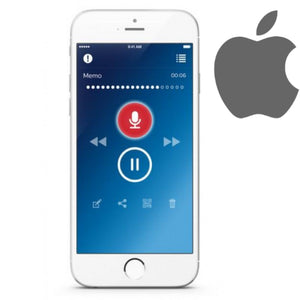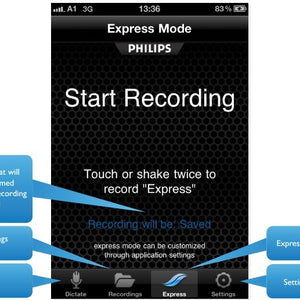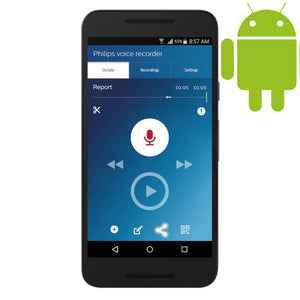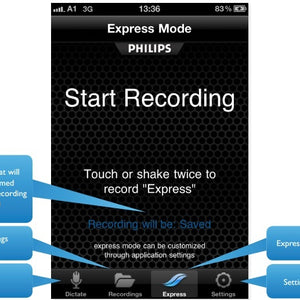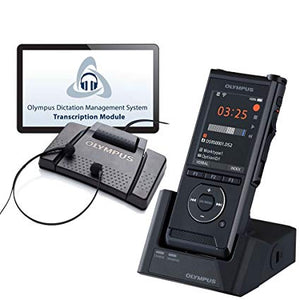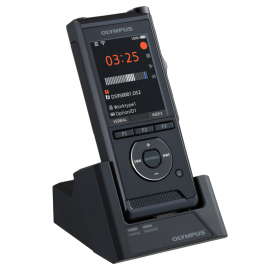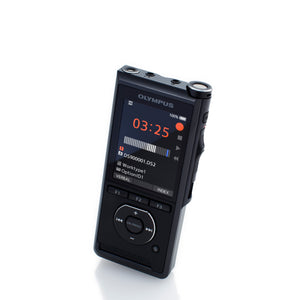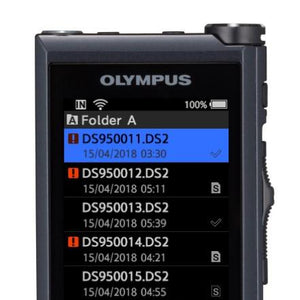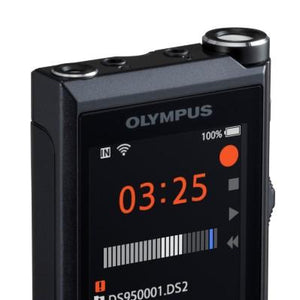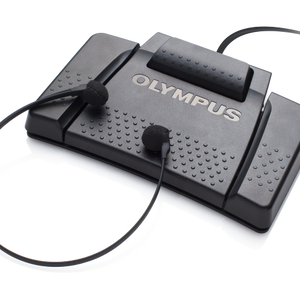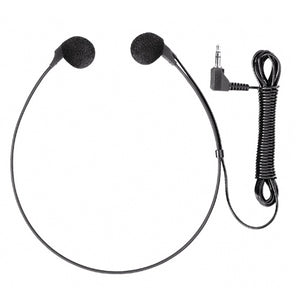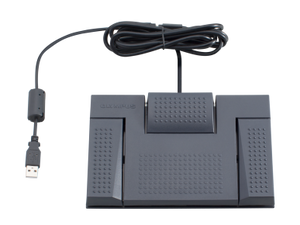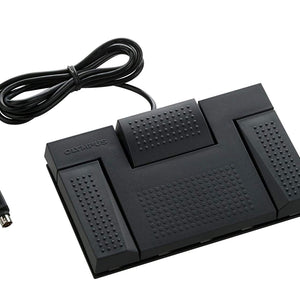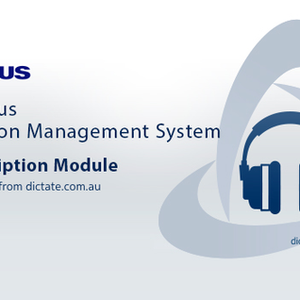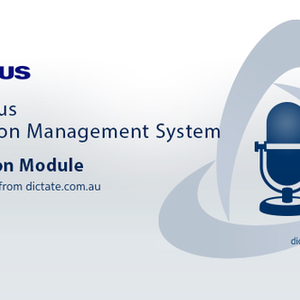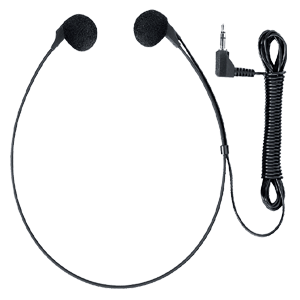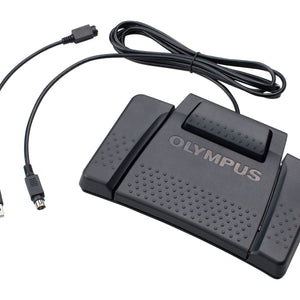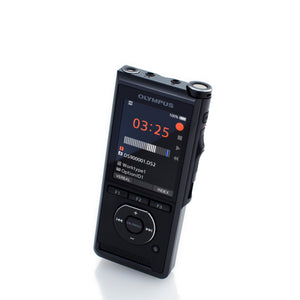Call 1300 255 900
- AI Medical Transcription Specialists
Dictaphones – It's time to move on from old dictation systems and clunky recorders. Cloud is here.
With this current health crisis we are no longer recommending traditional handheld recorders/dictaphones and legacy dictation / transcription systems. It is reasonably complex and expensive to transition these older dictation/dictaphone systems to a work from home or remote environment.
Consequently, we are now recommending that all customers wishing to work upgrade existing dictation systems move to the new Philip Speechlive cloud dictation system.
Not only is it much easier to use the Philip Speechlive system & less expensive but it is far easier to remotely dictate and send audio to typists in any location anywhere in the world. The Philip Speechlive system uses your mobile phone as a high quality cloud connected secure audio device and can send the dictation to your typist within seconds. There's no need to dock a record order or to set up complex networking to send the audio to other locations.
To get set up with a Philip Speechlive system please fill out this form today.
For many years, doctors, lawyers, and other professionals relied on the analog mini-cassette recorder to create voice recordings for transcription. However, despite the invention of the digital voice recorder, some people still prefer the conventional cassette recorder. The digital voice recorder ensures that dictation by doctors and lawyers are secure, have high sound quality and are always accessible, wherever work takes them.

The wide range of digital voice recorders on the market - such as the Olympus DS-9500 voice recorder - ensure that success is achieved with their simple-to-use interface and portability. But what exactly is a Dictaphone and how is it used with transcription software? Read on to find out everything that you need to know about the digital dictation recorders.
What Is a Digital Dictaphone ?
A digital Dictaphone recorder is a special type of voice recorder that enables you to capture sound recordings in a digital format that can be shared through various electronic devices such as smartphones, tablets, and desktop computers. The digital sound file is stored on a hard drive just like any other file or folder that you may have on your computer.
Dictaphones greatly vary in price, depending on the features of the voice recorder.
Digital voice recorders allow you to connect them directly to your computer and transfer files. Before purchasing a voice recorder, confirm exactly what features it has - as certain critical functions are essential for professional dictation.
How Does Digital Dictation Work with Transcription?
Professional dictation starts when the author dictates into the digital voice recorder just the way they would do with a handheld voice recorder. With the new DS9500, you can send the recorded files directly to the typist by email with very high sound quality.
However, with the other types of digital recorders you will need to upload the file onto your computer via a USB cable before sending. The software installed on the computer then recognises that there has been a connection and a window pops up asking the user where he/she wants to store the files.
You will select the storage location and choose whether to automate this process in the future. Once the files have been saved, the process is finished, and you can disconnect the digital recorder from your computer. You can then send the audio recording to your transcriptionist via email.
Once the transcriptionist receives the encrypted email, he/she opens it, and the audio files are brought into the transcription kit using the Olympus Digital Management System (ODMS) software that usually comes with the Olympus Transcription kit. From there, everything works just like it would with a regular tape transcriber. Foot pedals are used by the typist to control the fast forward/rewinding and playback speed in conjunction with the other component of the transcription kit, such as the stereo headset.
What Is the Difference between Analog and Digital Sound Recording
Although we are living in the digital age, analog dictation recorders and cassette tapes are still in use and most many shops continue to sell tape recorders. Tape is an old technology and it is a poor option lawyers and doctors. When was the last time you saw a tape player in a car? Tape players have been completely replaced by digital audio systems in modern vehicles for very good reason. Quality and reliability. Unlike the digital dictation recorders, analog recorders still use cassette tapes to record and store files, which pose a significant challenge when it comes sound quality, data protection, and security. While it is difficult to say goodbye to some old technologies, you taking a risk by using tape and should consider a switch to a digital dictaphone.
Unlike the digital dictation recorders, analog recorders still use cassette tapes to record and store files, which pose a significant challenge when it comes sound quality, data protection, and security. While it is difficult to say goodbye to some old technologies, you taking a risk by using tape and should consider a switch to a digital dictaphone.
Voice recorders usually offer enhanced data protection since you can usually recover your files in case you lose an important audio recording that was meant for transcription. The data stored on digital files can also be encrypted which greatly enhances the security of your voice recording.
Analog recording can’t offer the type of sound quality that you get when you use a digital dictaphone. In fact, the audio quality of files stored on a tape cassette always degrade with time. This can be a huge problem if a tape recording is requested by a court 5-10 years later and is unusable as evidence.
Why a Digital Dictation Machine?
One of the top reasons why you should make that switch is because digital recorders offer superior features compared to analog tape recorders. You can manipulate your recorded audio in various ways and store files over a long period without data loss.
Digital Dictaphones are highly portable and offer you the freedom to take them with you wherever you go. As technology advances, the devices tend to become smaller, lightweight, and more powerful. The same principle applies when it comes to digital voice recorders.
Modern voice recorders are also user-friendly and easy-to-use. For instance, with an analog cassette, if you want to play a particular part of your audio recording, you have to play rewind or fast-forward to get there - which is cumbersome and slow. Going digital eliminates this problem.
Olympus dictaphones are also durable and affordable. Since the digital recorders don't have any moving parts, durability& reliability is guaranteed. The sound quality also remains supreme, and most digital recorders have advanced noise canceling features. So if you are still using an tape recorder then contact us today about upgrading to a state-of-the-art voice recorder.

